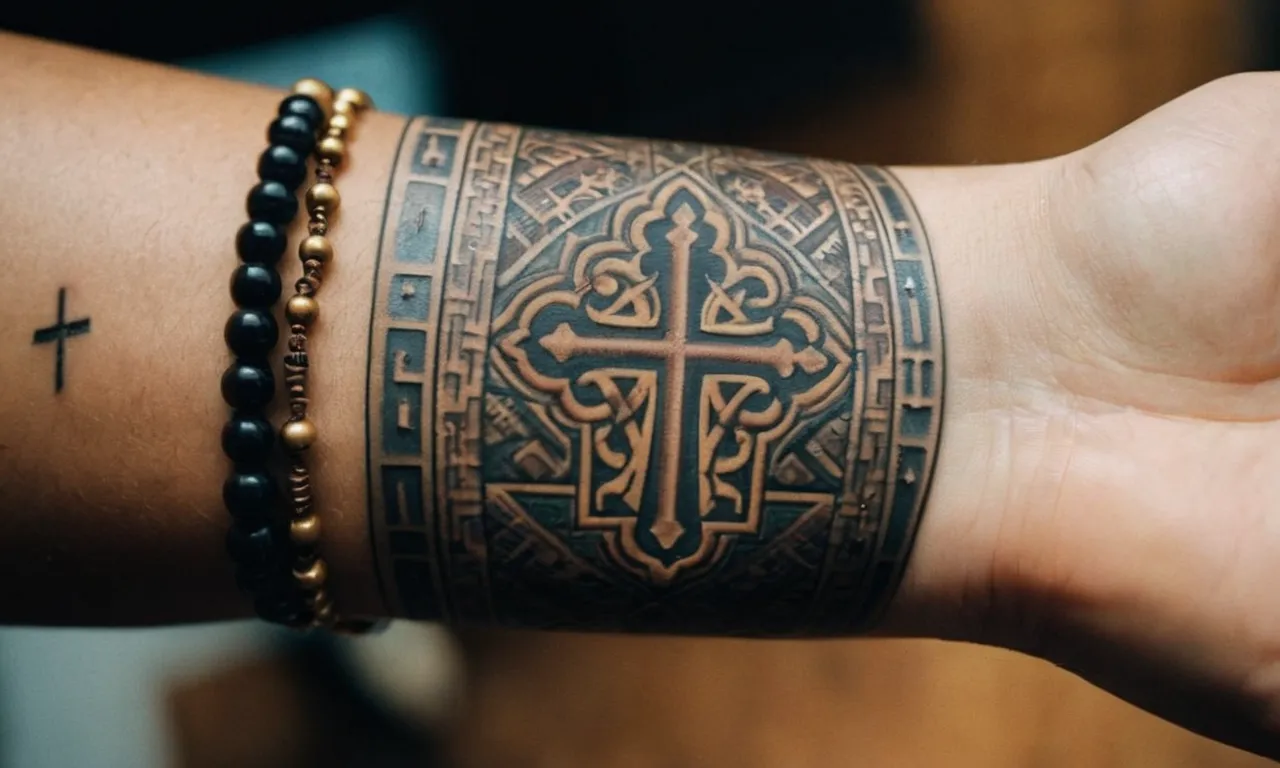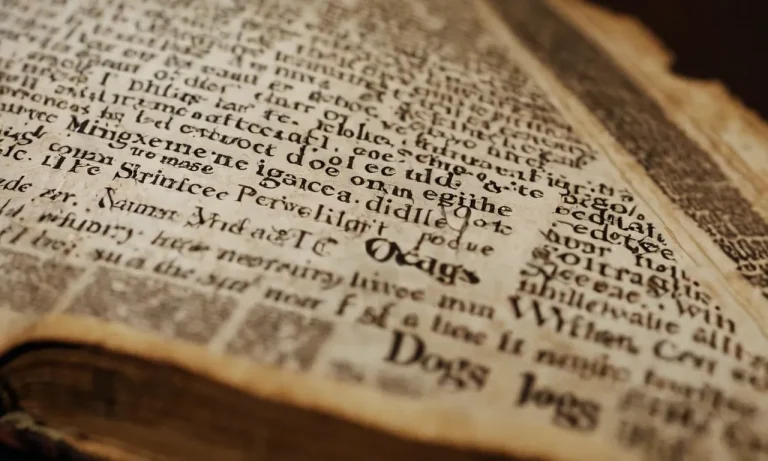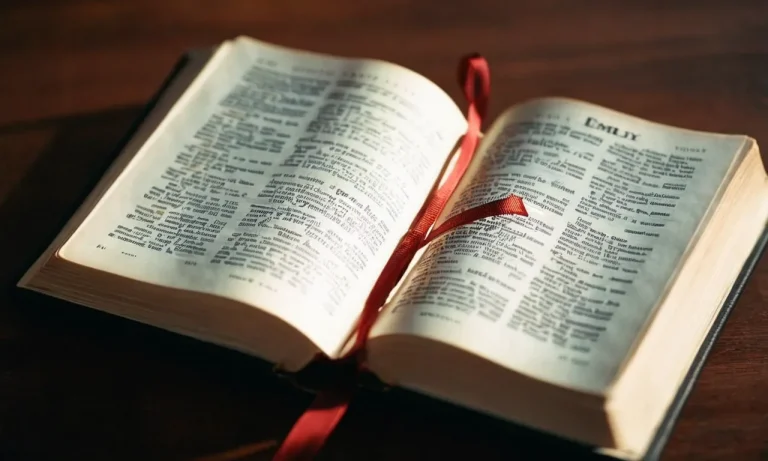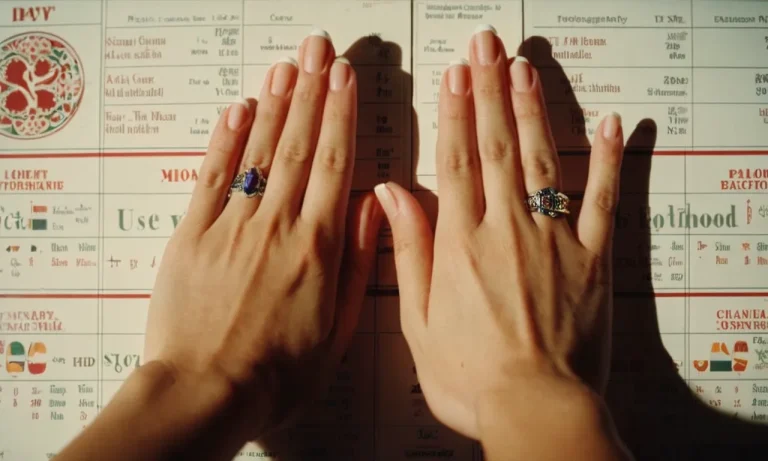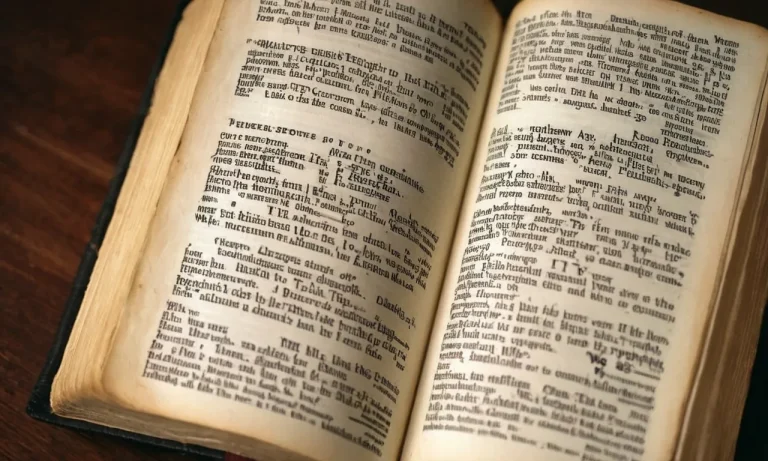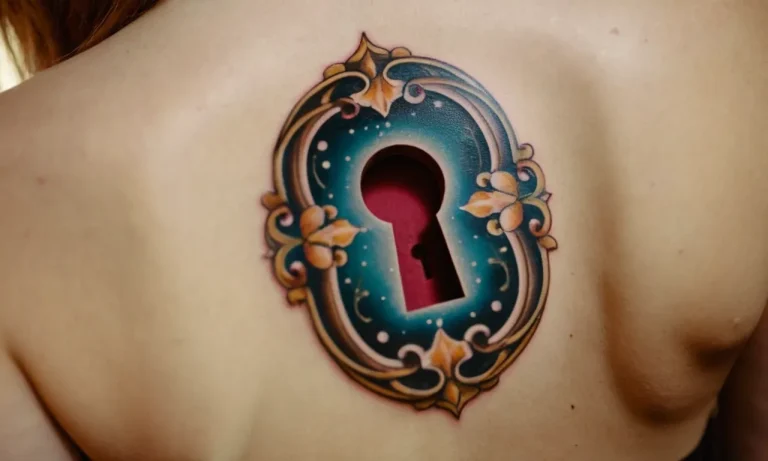The Profound Meaning Behind God Tattoos: A Comprehensive Guide
In the realm of body art, tattoos have long been a canvas for personal expression, symbolism, and spirituality. Among the myriad designs that adorn human skin, god tattoos hold a special significance, serving as a powerful testament to one’s faith, beliefs, and connection to the divine.
If you’re short on time, here’s a quick answer to your question: God tattoos are a form of body art that symbolize an individual’s spiritual beliefs, religious affiliation, or personal connection with a higher power.
These tattoos can depict various deities, religious symbols, or meaningful quotes, and often hold deep personal significance for the wearer.
In this comprehensive article, we will delve into the profound meaning behind god tattoos, exploring their historical roots, cultural significance, and the diverse interpretations they hold across different religions and belief systems.
We will also examine the symbolism and artistic expression behind these sacred body markings, providing insights into the personal journeys and spiritual connections they represent.
The Historical and Cultural Roots of God Tattoos
The practice of adorning one’s body with sacred tattoos has been a profound spiritual tradition spanning across numerous cultures and religions throughout history. These permanent markings, often depicting deities, symbols, or religious iconography, hold deep significance that transcends mere body art.
They serve as a testament to an individual’s unwavering faith, devotion, and spiritual journey.
Ancient Traditions and Spiritual Practices
The origins of God tattoos can be traced back to ancient civilizations where body art was an integral part of spiritual rituals and practices. For instance, the Maori people of New Zealand have a rich tradition of sacred tattoos known as “Ta Moko,” which were believed to imbue the wearer with spiritual protection and mana (power).
Similarly, in ancient Egypt, tattoos were used to honor deities like Bastet, the cat goddess, and Anubis, the god of the afterlife. These ancient practices highlight the deep-rooted connection between body art and spirituality.
Religious Symbolism in Body Art
Across various religions, tattoos have been employed to express devotion and faith. In Christianity, tattoos depicting crosses, angels, or biblical verses have become increasingly popular, serving as a permanent reminder of one’s spiritual beliefs.
According to a survey by Statista, around 12% of Americans with tattoos have a Bible verse inked on their bodies. Similarly, in Hinduism, tattoos of deities like Ganesha, Shiva, or sacred symbols like the Om are common among devotees, symbolizing their spiritual connection and reverence.
Cross-Cultural Influences and Adaptations
As cultures have intermingled and spiritual practices have evolved, the art of God tattoos has undergone cross-cultural adaptations and influences. For example, the traditional Polynesian tattoo designs, which often carry spiritual meanings and depict deities or mythological creatures, have gained popularity among people of various backgrounds.
Similarly, the ancient Buddhist practice of adorning the body with sacred mantras and symbols has inspired tattoo enthusiasts worldwide. This cross-pollination of cultural and spiritual practices has enriched the tapestry of God tattoos, creating a vibrant fusion of styles and meanings.
Ultimately, God tattoos serve as a powerful and permanent expression of one’s spiritual beliefs, cultural heritage, and personal journey. They are not merely decorative body art but rather a profound statement of faith, devotion, and connection to the divine.
As society continues to evolve, the art of sacred tattoos will undoubtedly continue to adapt and thrive, reflecting the diverse and ever-changing spiritual landscape of our world.
The Diverse Interpretations of God Tattoos
God tattoos are a profound expression of spiritual beliefs and cultural heritage, transcending boundaries and uniting individuals from diverse backgrounds. These intricate designs hold deep symbolic meanings, reflecting the rich tapestry of religious and spiritual traditions worldwide.
From the iconic symbols of Christianity to the intricate deities of Hinduism, the path to enlightenment in Buddhism, and the nature-based spirituality of indigenous cultures, god tattoos offer a window into the multifaceted interpretations of the divine.
Christianity and Biblical Symbolism
In the realm of Christianity, god tattoos often depict iconic symbols that hold profound significance. The cross, a universal emblem of Christ’s sacrifice, is a popular choice, with an estimated 45% of religious tattoos incorporating this symbol (according to a Statista survey).
Other biblical motifs, such as the dove, representing the Holy Spirit, or the ichthys (fish symbol), a covert symbol of early Christianity, are also widely embraced. These tattoos serve as a testament to one’s faith and a reminder of the guiding principles of Christianity.
Hinduism and the Pantheon of Deities
Hinduism, with its rich pantheon of deities, offers a vast array of sacred symbols and imagery for tattoos. The Om symbol, representing the primordial sound of the universe, is a popular choice, often accompanied by intricate mandalas or yantras.
Depictions of revered deities like Ganesha, the remover of obstacles, or Shiva, the cosmic dancer, are common among devotees. These tattoos not only signify one’s connection to the divine but also serve as a reminder of the teachings and values embedded within Hinduism.
A survey by the Pew Research Center revealed that around 80% of Hindus consider their religion an essential part of their identity, further emphasizing the profound significance of these sacred symbols.
Buddhism and the Path to Enlightenment
In the Buddhist tradition, god tattoos often symbolize the journey towards enlightenment and inner peace. The image of the Buddha, representing the embodiment of wisdom and compassion, is a popular choice.
Other symbols like the Dharma wheel, representing the teachings of the Buddha, or the lotus flower, symbolizing spiritual growth and rebirth, hold deep meaning for practitioners. These tattoos serve as a constant reminder of the principles of mindfulness, non-attachment, and the pursuit of a life free from suffering.
According to a study by the University of Miami, the number of Buddhist practitioners in the United States has grown by 170% since the 1970s, reflecting the increasing influence and appreciation of this ancient tradition.
Indigenous Beliefs and Nature-Based Spirituality
For many indigenous cultures, god tattoos are deeply rooted in their connection to the natural world and ancestral traditions. Symbols like the thunderbird, representing strength and power, or the dreamcatcher, believed to filter out negative energies, hold profound spiritual significance.
Nature-based motifs, such as animals, plants, or celestial bodies, are also commonly depicted, reflecting the reverence for the intricate web of life. These tattoos serve as a powerful reminder of the harmonious relationship between humanity and the natural world, as well as the importance of preserving cultural heritage.
According to the United Nations, there are an estimated 370 million indigenous people worldwide, each with their unique spiritual practices and beliefs, further emphasizing the diversity of god tattoos.
The Symbolism and Artistic Expression of God Tattoos
God tattoos are more than just ink on skin; they are a profound expression of faith, spirituality, and personal beliefs. These intricate designs hold deep symbolic meaning, allowing individuals to outwardly showcase their connection to the divine.
From sacred geometry to personalized interpretations, God tattoos offer a canvas for artistic expression and spiritual exploration.
Sacred Geometry and Intricate Designs
One of the most captivating aspects of God tattoos is their incorporation of sacred geometry and intricate designs. These meticulously crafted patterns often draw inspiration from ancient symbols and religious iconography, such as the flower of life, the Metatron’s Cube, and the Sri Yantra.
These designs are believed to hold profound spiritual significance, representing the harmonious interconnectedness of the universe and the divine order that governs all existence. According to a survey by Pew Research Center, 36% of Americans consider themselves highly religious, and many seek to express their faith through meaningful body art.
Meaningful Quotes and Scriptures
Another popular form of God tattoos involves incorporating meaningful quotes or scriptures from religious texts. These powerful words can serve as a constant reminder of one’s beliefs, values, and spiritual journey.
From uplifting verses from the Bible to inspiring passages from the Quran or the Bhagavad Gita, these tattoos allow individuals to carry the wisdom and guidance of their faith with them wherever they go.
A study by the University of Texas found that 72% of people with religious tattoos reported a deeper connection to their spiritual beliefs after getting inked.
- Popular Bible Verse Tattoos:
- “I can do all things through Christ who strengthens me.” (Philippians 4:13)
- “Trust in the Lord with all your heart.” (Proverbs 3:5)
- “Faith, Hope, and Love, but the greatest of these is Love.” (1 Corinthians 13:13)
Personalized Interpretations and Unique Styles
While many God tattoos draw from traditional religious symbolism, others opt for more personalized interpretations and unique styles. These tattoos often blend cultural influences, artistic styles, and individual experiences, creating a one-of-a-kind representation of one’s spiritual journey.
From abstract designs to vibrant colors and unconventional placements, these tattoos showcase the boundless creativity and diversity within the realm of religious body art. According to a survey by Pew Research Center, 84% of respondents believe that God is a “spiritual force” rather than a physical being, highlighting the diverse interpretations of the divine.
Whether it’s a simple cross, an intricate mandala, or a powerful quote, God tattoos serve as a reminder of one’s spiritual journey and the profound connection to something greater than ourselves. As the art of tattooing continues to evolve, these sacred designs will undoubtedly continue to inspire and captivate, offering a unique canvas for individuals to express their faith in a deeply personal and meaningful way. 😊
The Personal Journey and Spiritual Connection
Getting a God tattoo is a deeply personal and profound experience for many individuals. It represents a spiritual journey, a connection to one’s faith, and a reminder of the divine presence in their lives.
These tattoos often carry a multitude of meanings, reflecting the wearer’s unique beliefs, struggles, and triumphs.
Tattoos as a Reminder of Faith
For many people, a God tattoo serves as a constant reminder of their faith and spiritual beliefs. It’s a visual representation of their commitment to their religion and a way to keep their faith close to their hearts, even during times of doubt or hardship.
According to a Gallup poll, 25% of Americans with tattoos say their ink has a religious or spiritual meaning. Whether it’s a cross, a Bible verse, or a symbol representing their chosen deity, these tattoos act as a daily affirmation of their faith and a source of strength and guidance.
Overcoming Challenges and Finding Strength
For some, a God tattoo symbolizes their journey of overcoming challenges and finding strength through their spiritual beliefs. It may represent a particularly difficult period in their life where they turned to their faith for solace and guidance.
Perhaps it commemorates a significant milestone or a moment of spiritual awakening that helped them navigate through life’s trials and tribulations. These tattoos serve as a powerful reminder of the resilience and perseverance they’ve cultivated through their connection with the divine.
A study by the National Center for Biotechnology Information found that individuals with religious or spiritual tattoos often reported a stronger sense of purpose and meaning in their lives.
Honoring Loved Ones and Ancestral Ties
In some cultures and traditions, God tattoos can also be a way to honor loved ones who have passed or to celebrate ancestral ties. These tattoos may depict religious symbols or imagery that hold deep cultural significance, serving as a tribute to the wearer’s heritage and a way to keep their loved ones’ memories alive.
According to a survey by Ipsos, 19% of Americans with tattoos have one that honors a loved one. For example, in some Native American tribes, specific animal or nature-inspired tattoos are believed to connect the wearer to their ancestors and the spiritual realm.
These tattoos are not just a form of body art but a sacred tradition passed down through generations.
Whether it’s a personal expression of faith, a symbol of strength, or a tribute to cultural heritage, God tattoos hold profound meaning for those who choose to adorn their bodies with these sacred markings.
They serve as a constant reminder of the wearer’s spiritual journey, their connection to the divine, and the unwavering belief that guides them through life’s ups and downs. Ultimately, these tattoos are a testament to the power of faith and the human desire to find meaning and purpose in the face of life’s challenges.
Considerations and Precautions for God Tattoos
Respecting Cultural Traditions and Beliefs
When it comes to getting a God tattoo, it’s crucial to respect the cultural traditions and beliefs associated with the deity or religious figure you choose. Many religions have strict guidelines or taboos surrounding the depiction of their sacred symbols or deities.
For instance, in Hinduism, it’s considered disrespectful to have tattoos of deities on certain body parts, such as the feet or lower legs. Similarly, in Buddhism, some traditions prohibit the permanent marking of the body with tattoos.
To avoid causing offense or disrespecting religious beliefs, it’s essential to conduct thorough research on the cultural significance and appropriate representation of the God or deity you wish to have tattooed.
Consulting with religious leaders, scholars, or members of the respective faith community can provide valuable insights and guidance. Websites like ReligionFacts.com and BBC Religion offer reliable information on various religious traditions and their beliefs surrounding tattoos.
Choosing the Right Artist and Design
Selecting the right tattoo artist is crucial when getting a God tattoo. Look for an experienced artist who specializes in or has a deep understanding of the cultural and religious symbolism you want to depict.
Check their portfolio and read reviews to ensure they have the skill and expertise to create a meaningful and respectful design.
Work closely with the artist to ensure the design accurately represents the deity or religious figure, adhering to traditional iconography and symbolism. Don’t be afraid to ask questions and provide feedback throughout the design process.
Reputable tattoo studios, such as Sacred Ink Tattoo Studio, have artists who specialize in religious and cultural tattoos and can guide you through the process.
Aftercare and Maintenance
Proper aftercare and maintenance are essential for ensuring your God tattoo heals correctly and retains its vibrancy over time. Follow the artist’s instructions carefully, which typically include:
- Keeping the tattoo clean and applying a thin layer of ointment or moisturizer as directed
- Avoiding direct sunlight exposure and swimming until the tattoo has fully healed
- Gently washing the tattoo with fragrance-free soap and lukewarm water
- Refraining from picking or scratching the tattoo during the healing process
According to a survey by Statista, nearly 23% of people with tattoos experienced some form of tattoo-related complication, such as infection or allergic reactions. Proper aftercare can significantly reduce these risks and ensure your God tattoo remains vibrant and meaningful for years to come.
Remember, a God tattoo is a lifelong commitment and a profound expression of your faith or spirituality. By respecting cultural traditions, choosing the right artist and design, and following proper aftercare, you can ensure your tattoo is a beautiful and meaningful representation of your beliefs. 😊🙏
Conclusion
God tattoos are more than mere body art; they are a profound expression of one’s spiritual beliefs, personal journey, and connection to the divine. From ancient traditions to modern interpretations, these sacred markings hold a deep significance that transcends cultural boundaries and religious affiliations.
Whether depicting deities, religious symbols, or meaningful quotes, god tattoos serve as a constant reminder of one’s faith, a source of strength in times of adversity, and a tribute to loved ones and ancestral ties.
They are a testament to the human spirit’s innate desire to seek meaning, find solace, and connect with something greater than ourselves.
As we have explored in this comprehensive guide, the meaning behind god tattoos is as diverse and profound as the beliefs and personal experiences they represent. By understanding their historical roots, cultural significance, and symbolic expressions, we gain a deeper appreciation for the profound impact these sacred body markings can have on an individual’s spiritual journey.

